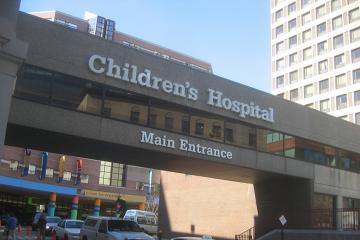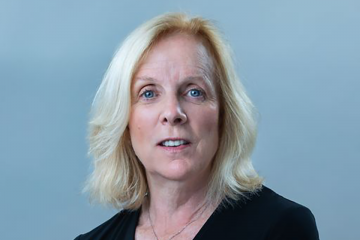Direct Entry Master of Science in Nursing (RN) and Post Graduate Certificate Family Nurse Practitioner (FNP)

Master of Science in Nursing for non-nurses
Transform your passion into expertise with Simmons University’s Direct Entry Master of Science in Nursing (MSN) Family Nurse Practitioner (FNP) program. If you have a non-nursing bachelor’s degree, this innovative program is designed for you. You'll learn advanced clinical skills and develop leadership capabilities to deliver compassionate and quality care.
You'll begin your academic journey by earning your license as a Registered Nurse. You'll have the option to transition to the online program after completing the pre-license curriculum and your first semester of the post-licensure curriculum.
Why enroll in the Direct Entry MSN FNP Program?

At Simmons University School of Nursing, based in Boston, you’ll join a program committed to preparing nurses for clinical excellence, leadership, and transformative practice in a diverse, global community.
Our comprehensive and rigorous education includes:
- Foundational Nursing Education: Acquire essential nursing skills and become eligible for the National Council Licensure Examination for Registered Nurses (NCLEX-RN).
- Advanced Family Nurse Practitioner Education: Delve into cutting-edge courses that blend theory and practice, preparing you to excel as a primary care provider. With immersive clinical experiences and mentorship from seasoned practitioners, you'll be equipped to lead and innovate in the ever-evolving field of health care.
- Clinical Excellence: Gain hands-on clinical experience through clinical rotations in diverse health care settings, developing critical thinking, clinical judgment and decision-making abilities.
- Leadership and Policy: Explore leadership, health care policy, and ethics to prepare for roles influencing health care systems and improving patient outcomes.
- Research and Evidence-Based Practice: Engage in research activities and learn to apply evidence-based practices to enhance the quality of care.
What Can You Do as a Family Nurse Practitioner (MSN)?
As a graduate of the Direct Entry MSN FNP program, you’ll be well prepared to take on leadership roles in various health care settings. Career opportunities include:
- Family Nurse Practitioner: Provide comprehensive primary care to patients of all ages, from infants to the elderly. Your role includes diagnosing and treating illnesses, conducting physical exams, prescribing medications, and promoting preventive health measures. You will treat both acute and chronic health conditions. FNPs also focus on patient education, helping individuals manage chronic conditions and make informed health decisions. You will be equipped to deliver personalized, high-quality care in various health care settings, including clinics, hospitals, and private practices to name a few.
- Health Care Leadership: Assume leadership positions within health care organizations, shaping policies and practices to improve patient care.
- Educator: Teach and mentor the next generation of nurses, nurse practitioners, and health care professionals in academic or clinical settings.
- Researcher: Contribute to advancing nursing practice and health care through research and evidence-based practice initiatives.
- Policy Advocate: Advocate for health care policies that promote patient-centered care and address public health challenges.
This program equips you with the expertise and confidence to excel as Family Nurse Practitioners, leaders, and innovators in the health care industry, making a meaningful impact on the lives of individuals and communities.
Nursing Program Highlights
90%
Simmons Graduates have a NCLEX Pass Rate Above 90%
A 90% pass rate is well above the national average for RN candidates, which is in the low 80% range.
850+
Clinical Training Sites
Boston-based students have access to more than 850 clinical training sites, including world-class hospitals like Massachusetts General, Brigham and Women’s, Boston Children’s, VA Boston Healthcare System, and Dana-Farber Cancer Institute.
7
Clinical Rotations
Through the pre-licensure program of study you will complete rotations in medical/surgical nursing, complex care, pediatrics, obstetrics, psychiatric nursing, and community health on your way to earning your MSN and becoming an RN.
>17K
Affiliated Placement Sites
Simmons has over 17,000 affiliated post-licensure clinical placement sites in 48 states.
95%
DE FNP National Board Pass Rate
Simmons University graduates have a DE FNP National Board Pass Rate of 95%. The national average is 74%.
1492
Clinical Hours
You will complete over 1492 total clinical hours over the course of the Direct Entry FNP and PMHNP program.
Nursing Faculty
The faculty at Simmons University School of Nursing are a dynamic blend of practicing nurses, nurse practitioners, nurse leaders, and nurse researchers, all committed to guiding you through the ever-evolving landscape of health care. Their real-world clinical experience, leadership expertise, and innovative research ensure that your education is both grounded in current practice and inspired by future possibilities.



